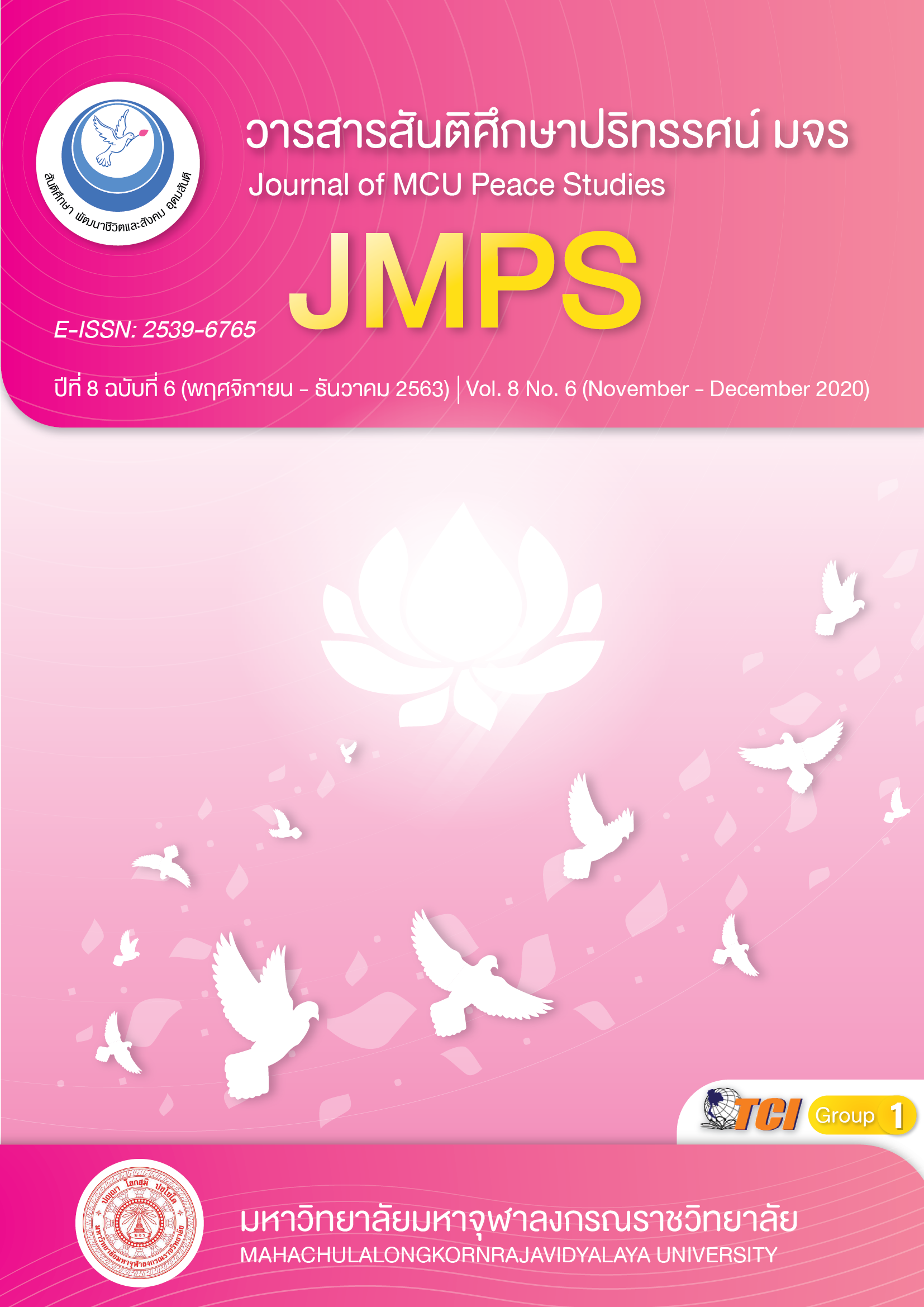ระบบการสร้างความยุติธรรมในการแต่งตั้งข้าราชการตำรวจระดับสถานีตำรวจ
Main Article Content
บทคัดย่อ
บทความนี้มีวัตถุประสงค์เพื่อศึกษาสภาพปัญหา พัฒนาระบบการสร้างความยุติธรรมในการแต่งตั้งข้าราชการตำรวจระดับสถานีตำรวจ ประชากรที่ใช้ในการวิจัยได้แก่ ผู้บริหารที่รับผิดชอบเกี่ยวกับการแต่งตั้งข้าราชการตำรวจระดับสถานีตำรวจในพื้นที่กองบัญชาการตำรวจนครบาลและตำรวจภูธร 1-9 ใช้วิธีการวิจัยแบบผสม คือ เชิงปริมาณและเชิงคุณภาพ มีแบบสอบถามและแบบสัมภาษณ์ที่มีการตรวจสอบโดยผู้เชี่ยวชาญ และผู้ปฏิบัติ นักวิชาการ รวมประชากรจำนวน 4,458 คน ใช้ตารางการคำนวณของเคจซี่และมอร์แกน Krejcie & Morgan, 1970 ได้กลุ่มตัวอย่างเป็น 647 คน และผู้ให้ข้อมูลสำคัญ จำนวน 24 คน นำเสนอข้อมูลเชิงสถิติและอธิบายเชิงพรรณา
ผลการวิจัยพบว่า สภาพปัญหาเกี่ยวกับการแต่งตั้งโยกย้ายภาพรวมอยู่ในระดับปานกลาง 1) ด้านการบริหารงานบุคคลมีปัญหาเกี่ยวกับการแต่งตั้งบุคคลไม่ตรงกับสายงาน การแต่งตั้งโยกย้ายข้ามจังหวัด หรือกองบัญชาการทำให้ตำรวจขาดขวัญกำลังใจ เกิดความเครียด และประสิทธิภาพการทำงานลดลง หัวหน้าสถานีตำรวจไม่มีอำนาจเลือกคนมาทำงาน และปัญหาตำรวจลาออกหรือย้ายไปหน่วยงานอื่น 2) ด้านทักษะที่จำเป็นที่ผ่านมาการฝึกอบรมไม่สอดคล้องกับความต้องการ 3) ด้านปัจจัยที่เกี่ยวข้องกับการแต่งตั้งโยกย้าย คือ ผู้บริหารต้องมีภาวะผู้นำ ไม่ควรเปลี่ยนแปลงระเบียบ ข้อบังคับ หลักเกณฑ์ที่ใช้ในการแต่งตั้งโยกย้ายโดยไม่จำเป็น และควรอยู่ในกรอบเวลาที่กำหนด ส่วนระบบการสร้างความยุติธรรมให้ความสำคัญกับการกระจายอำนาจที่มุ่งเน้นให้ประชาชนมีส่วนร่วมทั้งการตรวจสอบ ติดตาม ประเมินผล มีความโปร่งใสตามหลักธรรมาภิบาล แบ่งเป็น ปัจจัยภายใน ได้แก่ ปัจจัยนำเข้า กระบวนการ ผลผลิต และปัจจัยภายนอก ได้แก่ ปัจจัยที่ส่งผลดีเป็นโอกาส และปัจจัยที่ส่งผลเสียเป็นอุปสรรค คือ กฎหมาย ระเบียบ คำสั่ง ข้อบังคับ การเมือง สังคม วัฒนธรรม เศรษฐกิจ
Article Details
ทัศนะและความคิดเห็นที่ปรากฏในบทความในวารสาร ถือเป็นความรับผิดชอบของผู้เขียนบทความนั้น และไม่ถือเป็นทัศนะและความรับผิดชอบของกองบรรณาธิการ ยินยอมว่าบทความเป็นลิขสิทธิ์ของวารสาร
เอกสารอ้างอิง
Chaitha, P. (2017). Thai Police 4.0. Retrieved March 10, 2018, from http://preeda44.blogspot.com/2017/01/4.html.
Chokprajakcaat, S. et al. (2011). Analytical study to apply concepts Legalization not taking criminal penalties (decriminalization) and harm reduction in the use of drugs to develop drug policies in Thailand. "Drug Prevention Division, Office of the ONCB, Faculty of Social Sciences and Humanities, Mahidol University.
Cronbach, L.J. (1990). Essentials of Psychological Testing. (5th ed.). New York: Harper & Row.
Greenberg, J., & Baron, R. A. (1997). Behavior in organization: Understanding and manageing the Human side work. (6th ed.). New Jersey: Prentice – hall.
Human Resource Management Strategy of the Royal Thai Police 2014 - 2023. (2017). Retrieved January 13, 2019, from http://www.jaray.police.go.th/2014/pdf/008 yutthasat.pdf.
Karnasoot, P. (1998). Statistics for research in terms of package analysis. (4th ed.). Bangkok: Dansuttha.
Krejcie, R. V., & Morgan, D. W. (1970). Determining Sample Size for Research Activities. Educational and Psychological Measurement, 30(3), 607-610.
National Reform Steering Commission on Legal and Justice, National Reform Steering Assembly. (2016). Secretariat of the House of Representatives. Retrieved January 13, 2019, from https://www.parliament.go.th/ewtadmin/ewt/parliament_parcy/main.php?filename=index_05___EN
Poothakool, K. (2019). Relocation of senior police officers and police reform. Retrieved December 10, 2019, from https://today.line.me/th/pc/article/.
Ruitenberg, & Vokey. (2001). The Sage Handbook of Philosophy of Education. London: Sage.
Sillapee, T. (2016). English speaking development to civil engineer: Specification in a private construction company. Bangkok: Graduate School Thammasat University.
Thairath Online. (2019). Big Tu 'military can do Police must do it! Confirm the appointment of the police must be without corruption. Retrieved December 10, 2019, from https://www.thairath.co.th/news/politic/1306027.
Jeraphaet, V. (2019). Theories of Justice. Retrieved December 10, 2019, from http://www.ago.go.th/articles_59/articlevit_150959.pdf.


